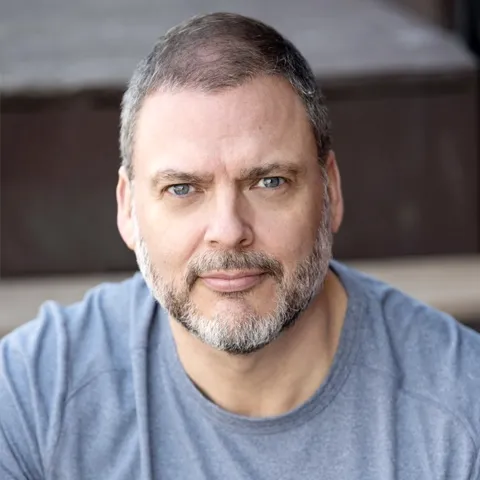
Join a team of the world’s most respected authorities in fascia anatomy and science for a three day exploration of human form and function, through the fascia lens.
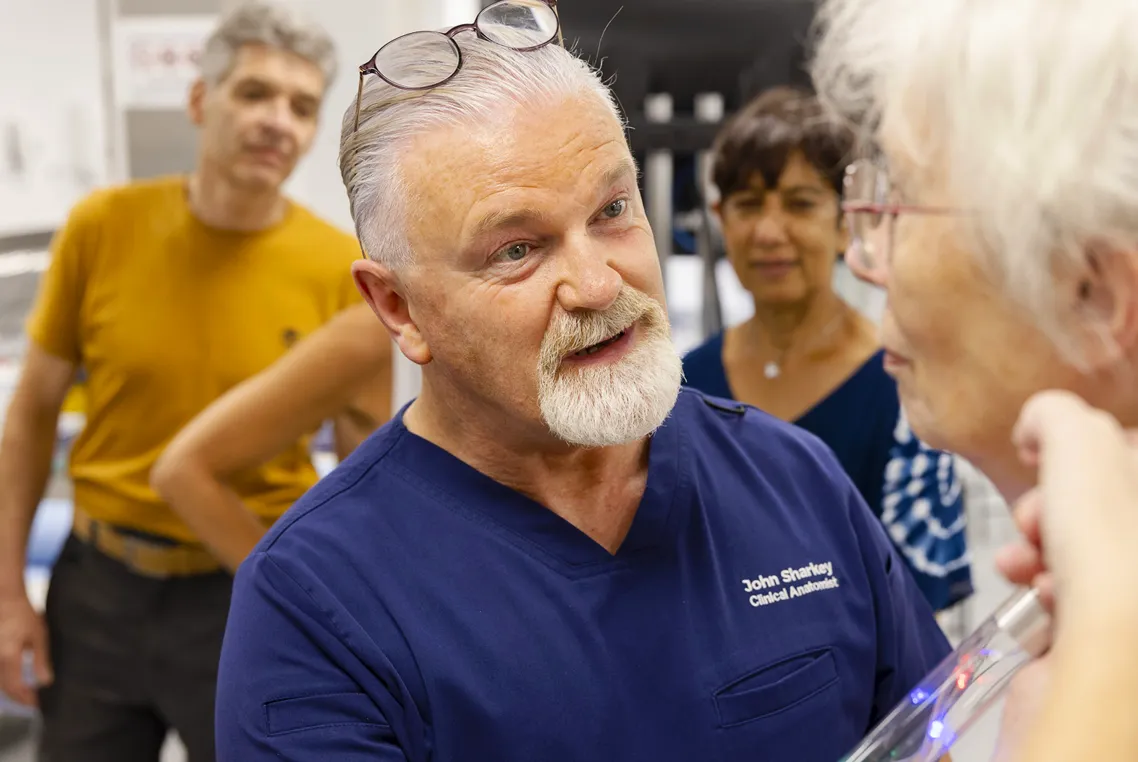
Some of the feedback we've received from previous dissection course attendees.
(Remember there's even more info in the FAQ section below)
Trecchi Human Academy in Italy is where we deliver an unparalleled retreat that focuses on human anatomy dissection and fascia exploration. Led by a team of world-renowned anatomists, the course provides an in-depth look at the intricate fascial network that connects all parts of the body.
Participants will have the unique opportunity to experience hands-on dissection and explore the fascia system with the guidance of expert tutors. The course will start at 9 am and run until 5 pm each day, with day one requiring an 8:30 am registration.
The course features daily presentations from the team of experts, followed by time in the dissection lab where participants will have the chance to dissect human cadavers. Through this exploration of the fascia system, participants will gain a deeper understanding of the interconnectedness of the body and how the fascial network influences movement, posture, and overall health.
This course is ideal for healthcare professionals, movement practitioners, neuromuscular therapists, and anyone interested in human anatomy dissection and fascia exploration. It offers a unique opportunity to expand knowledge and understanding of the human body and how to apply this knowledge in everyday practice.
Overall, the Fascia Focused Dissection Retreat in Italy offers an unparalleled educational experience that focuses on the fascinating and complex fascia system, providing an opportunity to deepen understanding and expertise in human anatomy dissection.
Below are some of the objectives for this dissection course
The Fascia Focused Dissection Retreat is a unique and exciting opportunity for individuals who are passionate about learning more about the fascia system and human anatomy. This course is designed to be accessible to everyone, from healthcare professionals to movement practitioners, researchers, and students.
Participants will benefit from a world-class faculty of anatomists and fascia specialists who have decades of experience in their field. The expert tutors will guide participants through an immersive learning experience that combines classroom instruction with hands-on dissection of human cadavers.
This retreat is suitable for individuals with a range of interests and backgrounds. If you are a healthcare professional, you will gain a deeper understanding of the body’s interconnectedness and how the fascial system influences movement, posture, and overall health. If you are a movement practitioner, you will learn about the role of fascia in movement and how to apply this knowledge to your practice.
The course is also ideal for researchers who want to gain a deeper understanding of the fascia system, its specialisations, and the role it plays in the body’s mechanics. Students will benefit from a comprehensive and hands-on learning experience that will complement and expand upon their academic studies.
The course is designed to be inclusive and supportive, with a focus on collaboration and teamwork. Participants will have the opportunity to work together to produce bespoke anatomical fascial specimens for educational purposes, further enhancing their knowledge and understanding of the fascial system.
Overall, the Fascia Focused Dissection Retreat is an exceptional opportunity for individuals with a keen interest in fascia and human anatomy to gain a comprehensive understanding of the body and its intricate fascial network. Whether you are a healthcare professional, movement practitioner, researcher, or student, this course will provide you with an immersive and transformative learning experience.
The fee for the Fascia Focused Dissection Retreat is as follows:
Standard Registration – €2,790.00
Earlybird Registration (closed February 29th 2024) – €2,590.00
Individuals can register by paying a deposit of €500.00 with the balance of €2,090.00 due by 5pm on February 29th 2024.
Bookings after February 29th 2024 can only be made by paying the full fee of €2,790.00.
Online booking is carried out via PayPal with payment processed in EURO.
Please contact our office of administration on +353 (1) 8827777 if you require further information or wish to speak to John Sharkey before making your booking.
Here’s a suggested syllabus for the three-day dissection course:
Day One:
Presentation
Dissection in the lab with a focus on the fascia system and its connections
Q&A and personal enquiry time
Day Two:
Presentation
Dissection in the lab with a focus on the fascial and osseofascial structures
Q&A and personal enquiry time
Day Three:
Presentation
Dissection in the lab with a focus on the fascia system and the role of fascia in movement
Q&A and personal enquiry time
Throughout the three days, there will be a special focus on the subject of Embryological Origins and BioTensegrity architecture. The course will explore the concept of the body as a tensioned network that relies on tensegrity organisation to grow and change. Participants will learn how movement and form are interconnected and how the body responds to loading history.
The dissection course will be highly practical, with participants working with human cadavers under the guidance of clinical anatomists and experienced dissectors. There will be ample time for questions and personal inquiry, allowing participants to deepen their understanding of the body and the fascia system.
Overall, this three-day dissection course provides a unique opportunity for participants to explore the human form and gain a comprehensive understanding of the role of fascia in movement and overall health. The course will be highly practical, immersive and led by experienced tutors, making it a transformative educational experience.
Day one of the dissection course will be a full day, starting with registration at 8.30am and ending at 5pm. The first day will be a comprehensive introduction to the course, providing participants with an overview of the human body and the importance of the fascia system.
On day two and three, the course will begin at 9am and end at 5pm each day. These days will be highly practical, with participants moving into the dissection room after a short presentation. Under the guidance of experienced clinical anatomists and dissectors, participants will explore specific areas of the body, with a focus on the fascia system and its role in movement and overall health.
Throughout the course, there will be ample time for questions and personal enquiry, allowing participants to deepen their understanding of the body and the fascia system. The course will be highly immersive, with participants working with human cadavers and gaining practical experience in dissection.
In addition to the practical dissection, the course will also provide participants with a deeper understanding of embryological origins and BioTensegrity architecture. The course will explore how the body responds to loading history and how movement and form are interconnected.
Overall, the course provides a unique opportunity for participants to gain a comprehensive understanding of the human body and the fascia system. The practical, hands-on approach of the course, coupled with the expertise of the faculty, makes it a transformative educational experience.
Please note that the content, presenters, schedule etc. may be subject to change.
Information about schedules, locations and start dates for the course
This unique educational course will be delivered by John Sharkey, MSc., Dr. Wilbour Kelsick, Joanne Avison, and Mark Flannigan with Dr. Peter Friedl and Dr. Marc Ellis. Further guest presenters may yet be announced.
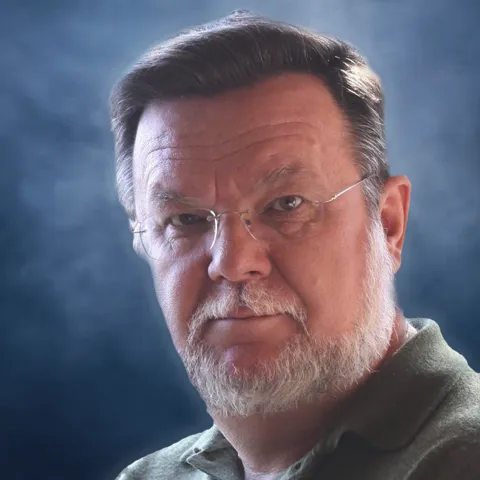

Professor Pilat is a physiotherapist and specialist in manual therapy. Creator of the Myofascial Induction approach. Lecturer on postgraduate and master degree programs in numerous universities in Spain and other European countries, as well as in Central and South America.
Author of the book Myofascial Induction, and co-author of books and papers on manual therapy published in Britain, Spain, Italy and the USA. Director of the Tupimek School of Myofascial Therapies, Madrid, Spain. Dr Andrzej Pilat has undertaken pioneering research on fascial anatomy using non-embalmed cadaver dissections and has used his expertise as a photographer to capture the inner beauty of the body in pictures.
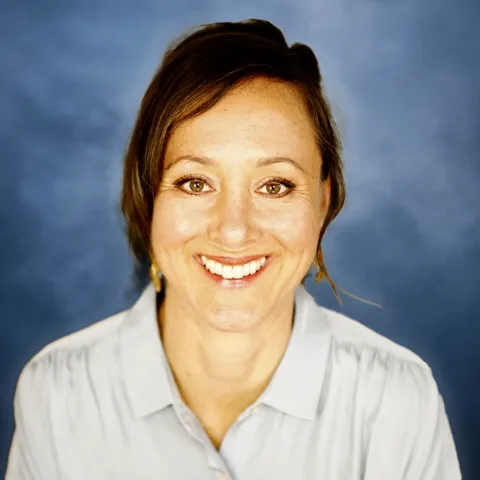

Karen Kirkness obtained her PhD in Medical Sciences at Hull York Medical School. She also holds two master’s degrees – one in Fine Art and the other in Human Anatomy from the University of Edinburgh Biomedical Sciences. Karen is the author of Spiral Bound: Integrated Anatomy for Yoga, which is a multidisciplinary book that explores the anatomical basis of spirality in human movement.
Karen is a Senior Yoga Teacher, E-RYT 500, and YACEP, accredited with the Yoga Alliance Professionals. She founded Meadowlark Yoga, a social enterprise studio, in 2008. Karen has embraced an inter-lineage approach to yoga that is focused on healing, facilitating a constraints-led journey towards self-care and personal growth for all levels of practitioners.
Karen is an active participant in both art and science festivals where she presents her work in creative ways. She is a member of the Anatomical Society and the International Symposium of Clinical and Applied Anatomists (ISCAA).
Karen currently resides in the Scottish Borders with her husband Simon and their two young children.
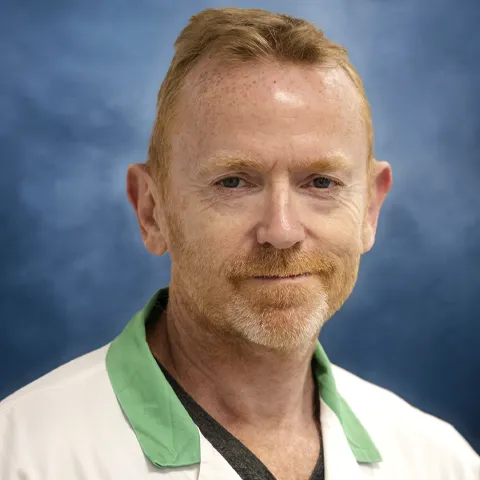

Mark Flannigan is a highly experienced and dynamic teacher and presenter in the fitness and wellness industry, with over 30 years of experience. He has shared his extensive knowledge and expertise in Australia, the United States, Japan, Brazil, and most of Europe.
As a successful competitor and judge for the Federation of International Gymnastics, Mark has gained invaluable experience and skills. He holds a BSc in Exercise Science and is a Neuromuscular Therapist NMT from the National Training Centre.
In 2016, Mark began participating in biotensegrity focused dissections with John Sharkey, a world-renowned anatomist. This experience has led Mark to shift his understanding of human anatomy into the 21st century and has allowed him to apply biotensegrity principles to his work as a Strength and Conditioning trainer and Pilates teacher.
Mark’s expertise and experience have made him a highly respected and sought-after practitioner in his field. His dedication to advancing the field of fitness and wellness and his commitment to incorporating the latest research and techniques into his work have helped many clients achieve their goals and improve their overall health and well-being.
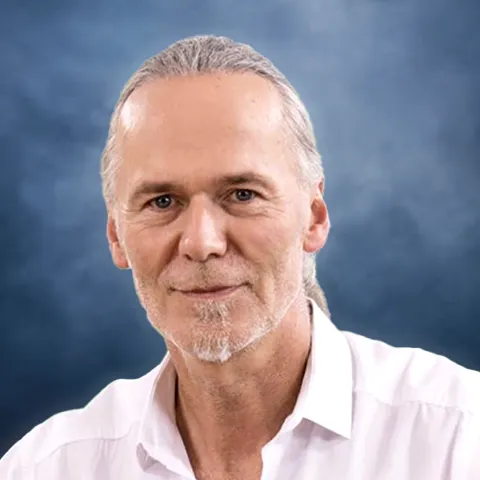

Robert Schleip, born in Göppingen in 1954, is a human biologist and psychologist renowned for his expertise in fascia research. He obtained his degree in psychology from the University of Heidelberg in 1980, and subsequently trained as a Certified-Advanced-Rolfer from 1977-1983, and as a Feldenkrais teacher from 1984-1987.
In 2006, Schleip earned his doctorate in human biology from the University of Ulm. His doctoral thesis on active fascial contractility received the prestigious Vladimir Janda Prize for Musculoskeletal Medicine.
As the co-initiator of the first International Fascia Congress held at Harvard Medical School in Boston in 2007, Schleip played a key role in the emergence of modern fascia research. He has been a member of the scientific committee for all subsequent congresses in the series.
Since 2008, Schleip has served as Director of the Fascia Research Group, Division of Neurophysiology at the University of Ulm. He also organized the “CONNECT – Connective Tissues in Sports Medicine” event in 2013 and 2017, alongside sports physician Prof. Jürgen Steinacker.
Schleip is an Executive Research Director of the European Rolfing Association, Vice President of the Ida P. Rolf Research Foundation, and Board Member of the Fascia Research Society. He is a highly sought-after lecturer, teaching in physiotherapy, orthopedics, and training science. Schleip is also an author and publisher of specialist publications on the subject of “Fascia,” and a frequent presence in the media on this subject.
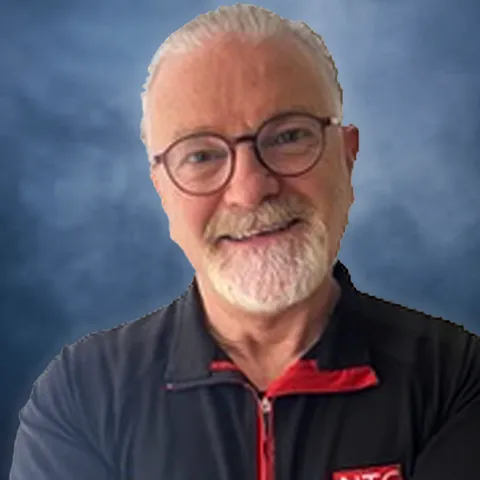

John Sharkey is a well-known international educator, author, and expert in various fields such as Clinical Anatomy, Exercise Physiology, human movement, and manual treatment of chronic pain using European Neuromuscular Therapy. He is a graduate of the University of Dundee, University of Liverpool, and University of Chester, completing both undergraduate and post-graduate studies in Exercise Physiology and Clinical Anatomy. He also holds a post-graduate certificate in education.
John is a senior lecturer in the Faculty of Medicine, Dentistry and Life Sciences at the University of Chester/NTC, Dublin. Additionally, he serves as the programme leader for the highly acclaimed series of Human Anatomy Dissection programmes , delivered past, present and future at King’s College London (England), The University of Dundee (Scotland), The Ohio State University (USA), Trecchi Human Academy (Italy) and The University of Witwatersrand School of Anatomical Sciences (South Africa). These courses are delivered teaching the geometry of anatomy and movement from the unique perspective of Biotensegrity-Anatomy for the 21st Century. His presentations are informative, entertaining, respectful, and insightful.
John is a proponent of the “Biotensegrity-Anatomy for the 21st century” model, which incorporates the groundbreaking work of his mentor, Dr. Stephen Levin MD. John is recognised as one of the foremost experts in the world on fascia and Biotensegrity. He specialises in teaching European Neuromuscular Therapy using living anatomy to address chronic pain conditions. Furthermore, he serves on the editorial board of professional journals such as the Journal of Bodywork and Movement Therapies (JBMT) and the International Journal of Osteopathic Medicine.
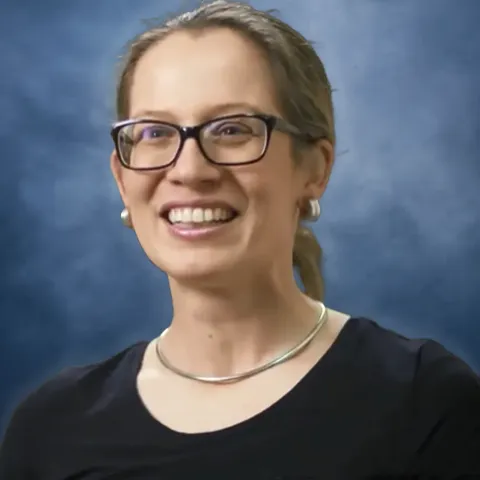

Dr. Carla Stecco is a renowned Orthopedic Surgeon who serves as a Professor of Human Anatomy at the University of Padova. She is a distinguished member of various esteemed associations, including the Italian Society of Anatomy and Histology, the European Association of Clinical Anatomy, and the International Academy of Manual Musculoskeletal Medicine.
Dr. Stecco’s scientific work primarily focuses on the study of the anatomy of human fasciae. Her research delves into the macroscopic, histological, and physiopathological aspects of this connective tissue. Dr. Stecco’s extensive knowledge and expertise in this area have made her a leading authority on the subject.
With her commitment to advancing the field, Dr. Stecco has made significant contributions to the scientific community. Her work has been published in numerous peer-reviewed journals, and she has been invited to speak at various international conferences. Through her research, Dr. Stecco has helped to enhance our understanding of the human body’s intricate fascial network and its role in musculoskeletal health.
The National Training Centre have been delivering respected educational programmes since 1985 and during that time we have had many questions asked by potential students before registration. Here you can find the answers to the questions we receive most often.
Can’t find the answer you’re looking for? Contact us!
This course is open to all individuals with a keen interest in fascia and human anatomy.
Due to the nature of dissection courses whereby many items, including cadavers, must be booked and paid for at least six months ahead of the scheduled course date, the refund policy is as follows:.
Where written notice of non-participation is received, fees will be refunded on the following scale:
Refunds cannot be considered in any circumstances less than twelve weeks before the course start date. All fees must be paid in full at least 12 weeks before the course starting date.
In some instances refunds will have the the payment processing company’s transaction fee deducted from any amount due. This occurs when the payment processor will not refund the transaction fee to NTC. In instances where the payment processor do refund the transaction fee to NTC this will also be refunded.
You should not book any non-refundable travel or accommodation until the NTC office of administration has confirmed the course. This will be done once the minimum required number of registrations has been received. Dissection courses are generally oversubscribed and confirmation of the course is generally issued many months in advance.
Our dissection courses offer a mix of fixation methods depending on the venue. This can range from fresh from frozen, Theil Soft Fixed and the more traditional Formalin and Formaldehyde method of fixation. We reserve the right to make changes to the fixation if necessary.
Can’t find the answer you’re looking for? Contact us!
ONSITE LESSONS
Practical classes take place either at NTC or SPORTSCO, Ringsend, Dublin 4
Saturday from 10:30am to 1pm and 2pm to 4:30pm
October 2024 – 12th♦, 19th, 26th
November 2024 – 2nd, 9th, 23rd, 30th
December 2024 – 7th, 14th
January 2025 – 4th, 11th, 18th, 25th♦
February 2025 – 1st, 8th♦, 15th, 22nd
Examinations and/or class will start at 9:30am on dates indicated with ♦
ONLINE LESSONS
Tuesday and Thursday Evenings from 7pm to 9pm
(Recordings available afterwards)
October 2024 – 15th, 17th, 22nd, 29th, 31st
November 2024 – 5th, 7th, 12th, 14th, 19th, 21st, 26th, 28th
December 2024 – 3rd, 5th, 10th, 12th
January 2025 – 7th, 9th, 14th, 16th, 21st, 23rd, 28th, 30th
PROVISIONAL PRACTICAL EXAMINATION DATES
February 2025 – 23rd March 2025 – 1st, 2nd
(Individual and group times will be issued by the NTC examination’s office)
OPTIONAL FREE COURSE
National Qualification in Kettlebell Training
January 19th, 2025 – Sunday from 10:00-17:00